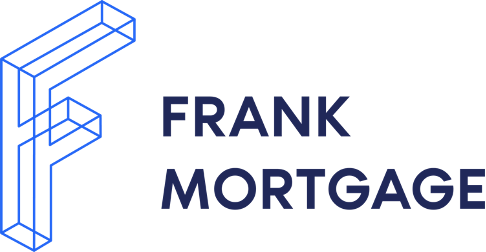The Best Current Mortgage Rates in Calgary
The best mortgage rates in Calgary, AB from major banks, credit unions and brokers.
Today's Best Mortgage Rates in Calgary, Alberta
Evaluate Calgary’s best mortgage rates in one place. You can compare the most current mortgage rates and monthly payments from 175+ banks and lenders across Alberta.
Rates are based on an average mortgage of $500,000 and subject to change based on filter criteria.
| Lender
|
Insured
|
Insurable
|
Uninsured
|
|---|---|---|---|
|
MMG Mortgages
|
3.99%
$2,627.39 / month
|
4.24%
$2,695.56 / month
|
4.19%
$2,681.85 / month
|
|
Mortio Financial Corp
|
3.99%
$2,627.39 / month
|
4.24%
$2,695.56 / month
|
4.14%
$2,668.19 / month
|
|
Frank Mortgage
|
4.09%
$2,654.55 / month
|
4.19%
$2,681.85 / month
|
4.09%
$2,654.55 / month
|
|
Northwood Mortgage Ltd.
|
4.14%
$2,668.19 / month
|
4.24%
$2,695.56 / month
|
4.24%
$2,695.56 / month
|
|
Mortgage Outlet - Russel Inspektor
|
4.29%
$2,709.29 / month
|
4.29%
$2,709.29 / month
|
4.29%
$2,709.29 / month
|
|
Innovation Federal Credit Union
|
4.39%
$2,736.87 / month
|
4.39%
$2,736.87 / month
|
4.39%
$2,736.87 / month
|
|
True North Mortgage
|
2.99%
$2,363.66 / month
|
2.99%
$2,363.66 / month
|
2.99%
$2,363.66 / month
|
|
The Mortgage Advisors
|
3.87%
$2,594.98 / month
|
3.87%
$2,594.98 / month
|
3.87%
$2,594.98 / month
|
|
Nesto
|
3.91%
$2,605.76 / month
|
3.91%
$2,605.76 / month
|
3.91%
$2,605.76 / month
|
|
Hypotheca
|
3.94%
$2,613.86 / month
|
3.94%
$2,613.86 / month
|
3.94%
$2,613.86 / month
|
|
MortgagestoGo
|
3.94%
$2,613.86 / month
|
3.94%
$2,613.86 / month
|
3.94%
$2,613.86 / month
|
|
One Link Mortgage & Financial
|
3.95%
$2,616.57 / month
|
3.95%
$2,616.57 / month
|
3.95%
$2,616.57 / month
|
|
Sudbury Credit Union
|
3.99%
$2,627.39 / month
|
3.99%
$2,627.39 / month
|
3.99%
$2,627.39 / month
|
|
Mainstreet Credit Union
|
3.99%
$2,627.39 / month
|
3.99%
$2,627.39 / month
|
3.99%
$2,627.39 / month
|
|
City Wide Financial Corp
|
3.99%
$2,627.39 / month
|
3.99%
$2,627.39 / month
|
3.99%
$2,627.39 / month
|
|
Northern Birch Credit Union
|
3.99%
$2,627.39 / month
|
3.99%
$2,627.39 / month
|
3.99%
$2,627.39 / month
|
|
The Police Credit Union
|
3.99%
$2,627.39 / month
|
3.99%
$2,627.39 / month
|
3.99%
$2,627.39 / month
|
|
Monster Mortgage
|
3.99%
$2,627.39 / month
|
3.99%
$2,627.39 / month
|
3.99%
$2,627.39 / month
|
Today's Best Mortgage Rates in Calgary
Evaluate Calgary's best mortgage rates in one place. RATESDOTCAs Rate Matrix lets you compare pricing for all key mortgage types and terms.
Rates are based on an average mortgage of $500,000 and subject to change based on filter criteria.
Updated 05:25 on Jul 23, 2025| Placeholder |
Insured
The rates in this column apply to borrowers who have purchased mortgage default insurance.
This is required when you purchase a home with less than a 20% down payment.
The home must be owner-occupied and the amortization must be 25 years or less.
|
80% LTV
The rates in this column apply to mortgage amounts between 65.01% and 80% of the property value. The home must be owner-occupied and have an amortization of 25 years or less. You must have purchased it for less than $1 million. These rates are not available on refinances. Refinances require "Uninsured" rates.
|
65% LTV
The rates in this column apply to mortgage amounts that are 65% of the property value or less. The home must be owner-occupied and have an amortization of 25 years or less. You must have purchased it for less than $1 million. These rates are not available on refinances. Refinances require "Uninsured" rates.
|
Uninsured
The rates in this column apply to purchases over $1 million, refinances and amortizations over 25 years. More info on the differences between insured and uninsured rates.
|
Bank Rate
Bank Rate is the mortgage interest rate posted by the big banks in Canada.
|
|---|---|---|---|---|---|
| 1-year fixed rate | 4.69% | 5.29% | 5.29% | 5.59% |
5.49%
|
| 2-years fixed rate | 4.04% | 4.69% | 4.54% | 4.54% |
4.79%
|
| 3-years fixed rate | 3.99% | 3.99% | 3.99% | 4.24% |
4.29%
|
| 4-years fixed rate | 3.99% | 4.34% | 4.34% | 4.44% |
4.39%
|
| 5-years fixed rate | 3.91% | 3.91% | 4.09% | 3.91% |
4.09%
|
| 7-years fixed rate | 5.04% | 5.00% | 5.00% | 5.19% |
5.00%
|
| 10-years fixed rate | 5.24% | 5.29% | 5.29% | 5.29% |
6.09%
|
| 3-years variable rate | 4.15% | 4.30% | 4.30% | 4.40% |
6.35%
|
| 5-years variable rate | 4.05% | 4.05% | 4.20% | 4.05% |
4.25%
|
| HELOC rate | N/A | N/A | N/A | N/A |
N/A
|
| Stress Test | 5.25% | 5.25% | 5.25% | 5.25% |
N/A
|
Jump straight to:
- Calgary mortgage rate market characteristics 2023-2024
- Mortgage rate trends in Calgary 2023-2024
- Historical 5-year-fixed rate vs. 5-year-variable rate in Alberta
- Calgary housing market trend 2023-2024
- Average house prices in Calgary
- What affects mortgage rates in Calgary
- Average value of new mortgage loans in Calgary 2019-2023
- Average mortgage monthly payments in Calgary 2019-2023
- How to get the best mortgage rates in Calgary
- Tips for first-time homebuyers in Calgary
- Mortgage lenders and brokers in Calgary
- What drives Calgary's mortgage outlook?
- Compare and find the best Calgary mortgage rate
- Frequently asked questions about mortgages in Calgary
Calgary mortgage rate market characteristics 2023-2024
Rising interest rates have had a significant impact on the mortgage and housing markets in Calgary, as has been around the country. Borrowers are searching for more affordable housing options and sellers are hesitating on listing their properties to avoid enduring the most of higher rates.
Calgary’s housing and mortgage market has shown resilience since 2022, compared to other provinces like Ontario and BC, driven by record-high international and interprovincial migration over the past two years. With higher house prices in high-demand provinces like Ontario and BC, buyers are looking for an affordable housing market and Calgary offers that option for them. These factors have increased housing demand in Calgary. However, supply is struggling to keep up with the increase in demand.
Inflationary pressure led the Bank of Canada to hike its policy interest rate 10 times since March 2022 up until July 2023, resulting in a significant increase in prime rates, bond yields and overall interest rates further impacting the housing market. The BoC rate hikes successfully reduced inflation to 2.9% in May 2024 but in turn made borrowing increasing difficult for the common Canadian. While analysts believe rates will go down in the second half of 2024, starting with the June 2024 rate cut of 0.25%, the rates will still be higher than the pre-pandemic levels.
Even as Alberta has experienced international as well as inter-provincial immigration influx in the last two years, the housing and mortgage dynamics differ in the province’s two largest cities – Calgary and Edmonton. However, the mortgage rates and lenders you will have access to in these two cities will be quite similar. Due to higher average home prices in Calgary compared to Edmonton (average benchmark price was $587,100 in Calgary in May 2024 compared to $392,700 in Edmonton during the same period), you are most likely to get a lower mortgage rate in Calgary as lenders compete to get your business. Some lenders may be more competitive in Calgary to negotiate to close the higher mortgage amount, compared to that in Edmonton as the mortgage amount is likely to be lower.
Oil and gas and energy sectors are the biggest employer in Calgary and the city is home to headquarters of big Canadian oil companies. The health of the oil sector does have an impact on the housing demand in the city. If oil prices rise, oil companies end up being in a better position to hire more people and pay better bonuses to their workers, resulting in job security and a stronger economy. This would indirectly lead to greater demand for mortgages as people would want to invest in real estate, and they feel in a better position financially to buy a home.
On the contrary, if oil prices fall, Calgarians working with oil companies are likely to lose their jobs, get lower salaries or not be in a financially stable economy. They might not feel as confident financially to make a big investment like buying a home, which would have an impact on housing demand in the city.
Mortgage rate trends in Calgary 2020-2024
Mortgage rates across the country have been significantly high in the last two years, since the pandemic. With 10 interest rate hikes by the Bank of Canada between March 2022 and July 2023, the mortgage and housing markets have considerably suffered in major markets like Ontario and BC. The higher interest rates have shifted the markets, with buyers searching for relatively more affordable housing options like those in the Calgary market.
The first BoC rate cut in two years happened in June 2024 and analysts expect more rate cuts happening in the second half of 2024.
While the 5-year variable interest rate borrowers enjoyed lower interest rates than 5-year-fixedrate borrowers before BoC rate hike spree started in Q2 2022, things changed for the worse for those borrowers. For a long time, 5-year variable mortgage rate remained the preferred choice for mortgage borrowers, but this changed quickly as the 5-year fixed rate began to hover lower than its variable counterpart starting December 2022.
Variable rate mortgages kept increasing mercilessly until July 2023, when the Bank of Canada halted its rate hike at 5%. In terms of fixed rate, bond yields – which have a direct impact on fixed rates – saw a 17-year high in October 2023 but then fell again over the next months. Inflation also came down from 8% in June 2022 to 2.9% in May 2024 and is expected to reach the 2% mark by 2025 end. The inflation and economic situations play a big role in Bank of Canada’s interest rate decisions.
Historical 5-year fixed rate vs. 5-year variable rate in Alberta
Source: Ratesdotca
Our in-house mortgage data shows that the lowest 5-year fixed rate is at 4.64% compared to 5.70% 5-year variable rate in June 2024. Two year ago, before the Bank of Canada’s rate hikes set in, the lowest 5-year variable rate was sitting comfortably at 0.85% in March 2022. This drastic interest rate change has deterred many first-time homebuyers to get into the market, as well as sent existing home-owners - who purchased homes at a very low rates back in 2021 and are up for renewal soon - in a tizzy because they are in for a real financial shock upon renewal at higher rates.
Calgary housing market trend 2023-2024
Calgary’s housing market is a sweet surprise amidst the housing mayhem that the BoC rate hikes caused in the country. Positive international immigration and interprovincial migration resulted in an influx of 45,375 people to Alberta in the first quarter of 2024. This is an increase of 4.5% from the first quarter of 2023. Fewer people left Alberta for elsewhere in Canada in Q1 2024, which significantly increased housing demand in this Albertan city.
Employment opportunities and relative affordability attracts people to the province, which has resulted in strong sales growth despite high interest rates.
We need to look at the housing market situation in Calgary through the lens of active listings and inventory. Active listings include single-family homes, condos, townhomes, and other types of properties currently on the market and available for purchase. When a seller lists a property, it becomes part of the active inventory. If you’re searching for a home, these are the properties you can consider. Active listings exclude properties that are under contract or already sold. On the other hand inventory encompasses both active listings and properties that are closed but pending sales. Monitoring inventory levels helps gauge market conditions and influences home prices.
In Calgary, the year-to date data (January 1 to the present date) by the Calgary Real Estate Board (CREB) suggests inventory has gone down while active listings continue to grow. Year-to-date 2024 (January 1-May) inventory is at 2,635 listings, which is 11.46% less compared to YTD 2023 inventory of 2,976. While active new listings have increased by over 10% at 15,4845 2024 YTD, compared to 14,334 active listings in YTD 2023. Total sales also increased by 11.2% to 12,412 listings YTD 2024 compared to 11,162 listings YTD 2023. This suggests there is a strong demand and limited supply in the Calgary housing market. Such a scenario leads to a seller’s market, where buyers face competition, and prices tend to rise.
Average house prices in Calgary
According to CREB, the city has experienced seller’s market conditions since the end of 2021. In Q1 2024, the total residential benchmark price increased over 10% year-over-year to $584,867.
Detached homes
In Calgary, the median sale price for single detached homes rose 13.4% on a year-over-year basis to $688,500 in the first quarter of 2024. This was a new record for the median sale price. New listings for detached homes rose to 2,036 in May 2024 compared to 1,795 in May last year, and average price of a detached property also rose 12.23% from $733,230 in May 2023 to $822,873 in May 2024. It appears from the numbers that the detached market continues to favour the seller as prices continue to rise.
Semi-detached
Calgary saw a 34% increase in new listings of semi-detached homes to 360 in May 2024 compared to 268 listings in May last year. This corresponded well with the increase in average price of semi-detached homes by 16% to $702,960 in May 2024 compared to $601,503 in May 2023. Just like the detached market, the sellers of semi-detached homes in Calgary continue to win as persistently tight market conditions drive up prices.
Townhouse or Row
The median sale price for townhouse and row units rose 21.6% on a year-over-year basis to $450,000 in the first quarter of 2024. This was also a new record for the median sale price of townhouse and row units. In May 2024, new listings rose 22.42% to 688 compared to 562 listings in May 2023. The average price of a row house in Calgary rose 16.56% to $473,913 from $406,597 in May 2023.
Apartments
The median sale price for apartment units rose 19% on a year-over-year basis to $312,250 in the first quarter of 2024, setting another new record for the median sale price of apartment properties.
New apartment listings increased 21.85% to 1,249 in May 2024, compared to 1,025 in May 2023, and average price of an apartment also increased 13.54% from $349,154 in May 2024 from $307,504 in May 2023.
Despite record-setting housing starts last year and an increase in active listings in the resale market, housing supply struggles to keep up with the demand. The demand for more affordable homes continues to drive growth for condos, apartments and row houses in Calgary. The market statistics continue to favour the sellers in Calgary. The lower house prices in 2023 can be due to crushing high interest rates and mutiple rate hikes by the BoC.
What affects mortgage rates in Calgary?
Many factors ranging from Bank of Canada’s policy rate, economic situation and your own personal finance situation can affect your mortgage rate. Let’s breakdown some of the major factors that can impact your mortgage rate in Calgary:
- Economic situation: The health of the economy plays a significant role in determining mortgage rates. A higher inflation rate correlates with higher rates, while a lower inflation rate may lead to lower rates.
- Bank of Canada's policy rate: The decisions made by the central bank regarding interest rates directly affect mortgage rates. When the Bank of Canada adjusts its target interest rate, it can influence borrowing costs for consumers as banking institutions set their prime rate based on BoC’s policy rate.
- Bond market: Bonds compete with mortgages for investor attention. When bond rates rise, banks may be less inclined to invest in mortgages due to the associated risk. Consequently, fixed mortgage rates can increase. Conversely, when bond yields decrease, fixed mortgage rates may follow suit.
- Supply and demand in real estate market: Market demand impacts home prices and, consequently, mortgage rates. As demand heats up, home prices rise, but competition among lenders can lead to more favorable rates for homebuyers. Calgary is a very competitive market for mortgage providers as mortgages are higher here compared to other Albertan cities like Edmonton.
- Personal finance situations:
- Credit score: Lenders assess your creditworthiness based on your credit score. A higher credit score may result in a more favorable mortgage rate.
- Down payment: A larger down payment can reduce risk for lenders, potentially leading to a lower interest rate.
- Rate type: Choosing between fixed and variable rates affects your mortgage payments. Fixed rates remain constant throughout the term, while variable rates fluctuate based on the prime lending rate.
- Mortgage Loan Term: Opting for longer-term fixed-rate mortgages can lock in lower rates.
- Income: Lenders evaluate your ability to make mortgage payments based on your income and debt-to-income ratio.
- Appraisal value: The appraised value of the home impacts the mortgage rate. If the appraised value is lower than expected, it affects the risk factor for the lender.
- Amortization: The 2024 federal budget allows first-time homebuyers to amortize their mortgage over 30 years, potentially affecting repayment terms and rates.
Remember that individual circumstances and market dynamics play a crucial role in determining mortgage rates. It's essential to consult with a mortgage professional to explore your specific options and find the best rate for your situation.
Average new mortgage loan value in Calgary 2019-2023
The average value of new mortgage loans in Calgary saw a steady increase from Q1 2019 to Q3 2021. As pandemic drove the house prices in Calgary housing market at a significant pace, the average new mortgage loan also increased. Rising interest rates starting Q2 2022 kept potential buyers on the edge while seller's enjoyed a stronghold on house prices in the market due to controlled inventory and higher demand.
Home prices in many Calgary areas dropped double digits from the 2022 peak. The average value of new mortgage loan also saw a decline between Q4 2022 and Q2 2023. As the Bank of Canada kept rate hike steady at 5% in July 2023, buyers gained confidence and we can see Q3 2023 average new mortgage loan price increase.
In addition to that, many borrowers could only afford lower mortgages due to high interest rates, which resulted in driving down the average new mortgage loan value starting Q2 2022.
While prices picked up in Q1 2024, there are mixed messages that the current economic conditions, Calgary's seller's market and increasing demand due to immigration and migration from other provinces are pushing buyers to the sidelines.
| Geography | 2019 Q1 | 2019 Q2 | 2019 Q3 | 2019 Q4 | 2020 Q1 | 2020 Q2 | 2020 Q3 | 2020 Q4 | 2021 Q1 | 2021 Q2 | 2021 Q3 | 2021 Q4 | 2022 Q1 | 2022 Q2 | 2022 Q3 | 2022 Q4 | 2023 Q1 | 2023 Q2 | 2023 Q3 | 2023 Q4 |
|---|---|---|---|---|---|---|---|---|---|---|---|---|---|---|---|---|---|---|---|---|
| Canada | $258,241 | $256,616 | $274,762 | $276,236 | $278,928 | $289,038 | $297,367 | $313,607 | $323,678 | $343,971 | $364,954 | $350,686 | $361,001 | $366,163 | $363,654 | $325,612 | $320,298 | $314,540 | $338,522 | $327,899 |
| Provinces | ||||||||||||||||||||
| Alberta | $274,739 | $276,992 | $285,010 | $283,456 | $275,343 | $284,999 | $297,154 | $296,603 | $290,816 | $313,308 | $329,274 | $317,212 | $319,728 | $331,285 | $339,854 | $317,353 | $310,002 | $316,328 | $326,879 | $325,139 |
| Calgary | $290,839 | $293,994 | $302,960 | $302,718 | $289,424 | $301,570 | $317,497 | $316,979 | $304,368 | $338,462 | $361,420 | $344,341 | $342,042 | $358,516 | $371,194 | $336,715 | $331,194 | $339,293 | $357,552 | $356,881 |
Source: CMHC
Average mortgage monthly payments in Calgary from 2019-2023
From the pre-pandemic times, the average monthly mortgage payment in Calgary was around $1,581 in Q1 2019, which decreased as interest rates went historically low through Q1 2021. With the Bank of Canada’s interest rate hikes, staring March 2022, you can see monthly payments increase Q2 2022 onwards. House prices have also increased in Calgary which is evident from the data that shows monthly mortgage payments increased as well.
| Geography | 2019 Q1 | 2019 Q2 | 2019 Q3 | 2019 Q4 | 2020 Q1 | 2020 Q2 | 2020 Q3 | 2020 Q4 | 2021 Q1 | 2021 Q2 | 2021 Q3 | 2021 Q4 | 2022 Q1 | 2022 Q2 | 2022 Q3 | 2022 Q4 | 2023 Q1 | 2023 Q2 | 2023 Q3 | 2023 Q4 |
|---|---|---|---|---|---|---|---|---|---|---|---|---|---|---|---|---|---|---|---|---|
| Canada | $1,415 | $1,379 | $1,416 | $1,410 | $1,442 | $1,432 | $1,428 | $1,451 | $1,467 | $1,530 | $1,597 | $1,534 | $1,594 | $1,722 | $1,909 | $1,923 | $1,984 | $1,920 | $2,074 | $2,143 |
| Provinces | ||||||||||||||||||||
| Alberta | $1,520 | $1,500 | $1,482 | $1,470 | $1,456 | $1,443 | $1,447 | $1,412 | $1,375 | $1,437 | $1,488 | $1,436 | $1,476 | $1,601 | $1,800 | $1,856 | $1,907 | $1,905 | $1,977 | $2,089 |
| Calgary | $1,581 | $1,560 | $1,544 | $1,545 | $1,515 | $1,501 | $1,517 | $1,484 | $1,403 | $1,521 | $1,597 | $1,527 | $1,543 | $1,692 | $1,941 | $1,971 | $2,033 | $2,036 | $2,153 | $2,296 |
Source: CMHC

How to get the lowest Calgary mortgage rates
To find the best mortgage rates in Calgary you can:
- Comparison shop: Look at sites like RATESDOTCA that allow you to compare the lowest rates in your area. It only takes a few minutes to input your financing needs and you'll receive quotes immediately. Its free and simple to use.
- Good credit score: Banks charge customers based on their credit history. The higher the risk, the more your mortgage rate might be. Maintaining a good credit will show your lender you are a lower risk, which might help reduce your mortgage rate. A better score shows your lender that you are a risk worth taking and could lead to better rates.
- Decrease your debt-to-income ratio: This represents the percentage of your gross income used to pay off debts. The lower your debt ratio the more likely lenders are to lend you money at a better rate.
- More down payment: By giving a larger down payment, you can reduce the size of your mortgage and hopefully get a better rate.
Tips for first-time homebuyers in Calgary
If you’re a first-time homebuyer, here’s what you can do to make housing more affordable for yourself:
- Take stock of your finances: Home ownership is likely one of the most expensive investments you’ll make. Before you jump into it, you will need to evaluate your income streams, estimate the total costs of home ownership, and create a financial plan to ensure you'll be able to handle what comes your way. In addition to the initial purchase price and mortgage costs, you’ll need to account for other expenses, including closing costs, land transfer taxes, and ongoing costs like insurance, property taxes, utility bills, and maintenance. Unlike renting, you'll be responsible for big-ticket items like appliances or a new roof when those bite the dust (and they will). Making that plan ahead of time and assessing what’s doable for you will help you understand how much you can reasonably pay for a new home.
- Get pre-approval on your mortgage loan: It's a good idea to get a pre-approved mortgage even before the process begins. This will give you a clearer picture of how much you can afford, what kind of interest rate you qualify for, and an estimate of your monthly mortgage bill. Without this knowledge, it's tough to know what neighbourhood or type of housing you can seek out.
- Think long-term: Your needs will inevitably change over time. At the moment, you may be single or recently married and not considering kids. Over time, however, you may want to expand your family. How does that change your long-term home needs? Were you working at home during the pandemic but now are being called back to the office? That too might change where and how you want to live. It might be better to go back to the city if you’ve moved out, for example. These are just a few examples of choosing a new home based on immediate needs and circumstances instead of finding a spot that will serve you from now until 10 years or more. When deciding on a place, consider if your lifestyle will eventually evolve.
- Research homebuying incentives from the federal government: If you're considering buying your first home in Calgary, you'll likely benefit from some federal government-backed programs
- First-Time Home Buyer Plan (HBP) allows you to withdraw up to $35,000 from your RRSP to buy or build a home for yourself or a related person with a disability. The withdrawal is tax-free if it is paid back within the required timeframe.
- First-Time Home Buyer’s Tax Credit (HBTC) allows first-time home buyers who acquire a home to claim a non-refundable tax credit of up to $1,500.
- GST/HST New Housing Rebate is available for new home purchases and could reduce upfront costs to help make homeownership more affordable.
- Find a trustworthy team of professionals: They're called ‘experts’ for a reason. Seek out a trusted real estate agent, insurance and mortgage broker, home inspector, appraiser, land surveyor, contractor or lawyer to guide you along this journey. You might think you’re saving money at the onset of the process by taking a DIY approach, but you could run into major costs down the line if your home was not properly vetted or you missed contractual issues, for example.
If you're searching for a mortgage broker or agent, apply for a quote with RATESDOTCA. We'll set you up in three minutes with the mortgage provider offering you the lowest rate.
Mortgage lenders & brokers in Calgary
| Name | Address | Phone |
|---|---|---|
| National Bank of Canada | 100 239 8 Ave SW, Calgary, AB T2P 1B9 (Multiple locations) | |
| True North Mortgage | 225 7 Ave SW (Plus 15), Calgary, AB T2P 2W3 (Multiple locations) | (403) 248-6699 |
| The Mortgages for Less Team | 223 14th Street NW, Calgary, AB T2N 1Z6 (Multiple locations) | (403) 241-3255 |
| Concord Mortgage Group Ltd. | 107 1905 Centre St NW, Calgary, AB T2E 2S7 | (403) 290-1990 |
| CML Canadian Mortgage Lender | 2316 6 St NE, Calgary, AB T2E 3Z1 (Multiple locations) | (866) 265-7988 |
| Fairstone | 2943 17 Ave SE, Calgary, AB T2A 0P7 (Multiple locations) | (800) 995-2274 |
| FEJ Capital Inc | 2148B 52 Ave Ne, Calgary, AB T3J 0K7 | (403) 383-3495 |
| Connect First Credit Union Ltd. | 116-317 7 Avenue SW, Calgary, AB T2P 2Z2 (Multiple Locations | (403) 736-4000 |
| LowestRates.ca | 225 King Street W, Toronto, ON. | (844) 726-0907 |
| RATESDOTCA | 225 King Street W, Toronto, ON. | (844) 726-0907 |
What drives Calgary's mortgage outlook?
Calgary, Alberta’s mortgage and housing market is heavily influenced by the health of the energy sector, primarily oil and gas, besides the Bank of Canada’s interest rate decision and other economic policy related changes.
The city’s economy is also driven by tourism thanks to its proximity to the Rocky Mountains and its annual Calgary Stampeded rodeo that draws crowds from around the world.
Even with the scare of a global recession looming, a recent fiscal update reported that Alberta is well-positioned to thwart any economic challenges, owing to higher oil prices from the tight global demand-supply challenge. Housing has historically boomed when the oil and gas industry is performing well.
Analysts believe oil prices will continue to be volatile, despite a good performance since mid-October 2023. Calgary’s housing market has suffered due to high interest rates, impact of inflation, and immigration, causing high demand for housing and limited supply and inventory. Like most other regions, housing and mortgage demand are expected to remain weak into 2024, until Bank of Canada continues to cut its policy interest rate further after the recent June 2024 rate cut. Mortgage market is expected to see some respite in late 2025-early 2026, but time will tell.
For month ended March 31, 2024, Alberta has recorded a total of 588,901 number of mortgages, with 1,886 mortgages in arrears, which is 0.32% of arrears to total number of mortgages.
Mortgage underwriters often exercise slightly more caution with Calgary deals given ongoing difficulties in the oil and gas sector, which create risk of defaults, home price weakness and higher losses.
Compare and find the best Calgary mortgage rate
If you’re a Calgarian in the market for a mortgage, you might be considering a mortgage from your bank thinking the “convenience” of having all your accounts in one place seems appealing. Well, you might want to think again.
These days, roughly 90% of consumer banking is done online and banks no longer have a monopoly on convenience. In fact, you’d be remiss to complete the mortgage process without first comparing rates. There are two key reasons for this: it’s easy, and it can save you a bundle of money.
If you compare Calgary’s best mortgage rate against the worst rate, that difference can span a full percentage point or more. If you took the first offer from your bank at the mid-part of that range, you’d be leaving thousands of dollars on the table given an average size mortgage.
It’s a well-known fact that Canada’s big banks are not the most transparent companies when it comes to pricing mortgages. Getting the best rate in Calgary truly requires legwork and comparison. That said, banks do tend to have lower pricing on uninsured mortgages and HELOCs versus competitors.
One option is to work with a mortgage broker. They’ll shop several lenders for you to find you the best mortgage rate in the city. But keep in mind brokers don’t get paid from all lenders, so they won’t offer a comprehensive market picture.
One thing they can do, if you deal with a competitive one, is use part of their commission to “buy down” your rate. It never hurts to ask a broker to do this in order to win your business.
In general, the best time to shop rates in Calgary is during the busy spring homebuying season. That’s when most lenders offer their sharpest mortgage deals. Just remember: the goal is to minimize your total borrowing costs. That means settling on the optimal combination of the lowest rate and the best flexibility, given your five-year goals.
Frequently asked questions about mortgages in Calgary
Got more questions about getting a mortgage in Calgary? We got you covered.
How much can I save by comparing the current Calgary mortgage rates?
By comparing rates on RATESDOTCA, you could save thousands of dollars annually. By going this route, you'll be making informed decisions based on all the choices available – rather than jumping on the first mortgage offer you see.
Why should I compare Calgary mortgage rates with RATESDOTCA?
RATESDOTCA is one of the best places to compare mortgage rates in Calgary. Lenders across Canada, such as the Bank of Nova Scotia, TD Bank, National Bank, RBC, BMO, and many others, are compared directly to one another to help you find the best deal possible on your Calgary mortgage.
Rather than going into the process blindly, having sites like RATESDOTCA compare mortgage rates allows you to have up-to-date knowledge well before you make the life-changing decision of purchasing a home. In fact, RATESDOTCA is updated with the latest rates on the market constantly – so don’t be shy to check back frequently for new deals.
Are Calgary mortgage rates higher than other Alberta cities?
Mortgage rates are influenced by many factors. As an individual, you will be assessed for your ability to pay back your mortgage, the type of home you are buying, its condition, location and more. So, from that point of view, mortgages can vary greatly, even within a single neighbourhood.
However, because Calgary is a major metropolitan area, and has many lenders vying for your business, mortgage rates would not necessarily be higher in the city compared to other areas in the province. Also, the real estate market is relatively liquid, making rates competitive no matter where you look. This means that rates in Calgary may in fact be lower than in other parts of Alberta due to the potentially higher number of competitors.



























